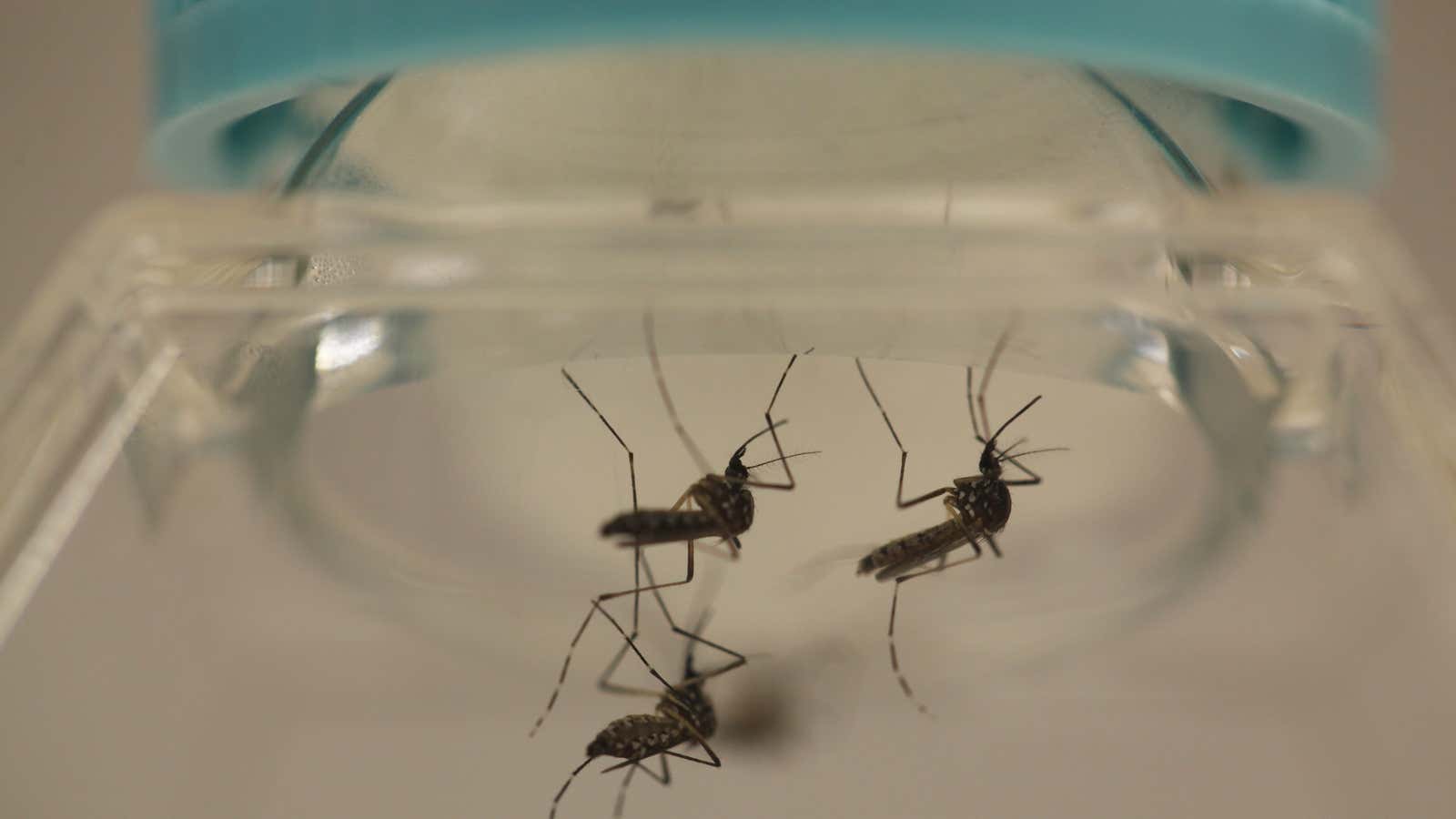This post has been updated with information about international programs on vector control.
A Chinese factory is breeding 20 million male mosquitoes a week, and releasing them into nature to copulate with wild female mosquitoes. Its aim—culling the population, and eradicating disease.
A team of scientists, led by Xi Zhiyong of China’s Sun Yat-sen University and Michigan State University, announced Monday (Mar. 14) that they are breeding mosquitoes that are infected with Wolbachia bacteria, which produces infertile eggs when they mate with females in the wild. Because the transmission of dengue and Zika is carried by mosquitos, the release of these laboratory insects could stop the diseases from becoming epidemics, the research team explains (link in Chinese).
The world’s biggest “mosquito factory,” with a total area of 3,500 square meters (38,000 sq ft), and four workshops that each can breed 5 million mosquitoes a week, has been established in southern China’s Guangzhou city, where dengue fever strikes annually.
It is not clear where the male mosquitoes will be released in the future. But the research team’s pilot project released 500,000 Wolbachia-infected male mosquitoes to a small island in Guangzhou in March of 2015. The mosquito population on the island had dropped by half by June that year, Xi told the Beijing News (link in Chinese) at that time. Those “500,000 mosquitoes sound a lot, but in fact, they’re like a drop in the ocean,” Xi said.
Wolbachia mosquitoes could have a greater advantage over genetically modified ones (another experimental way of controlling mosquito populations) because genetic tweaks kill just one generation, while Wolbachia is passed on to the next generation via infected females.
The global Eliminate Dengue program has released Wolbachia mosquitoes in Australia, Vietnam, Brazil and Indonesia, and those schemes are more effective, and less expensive than traditional methods of insecticide spraying, the Guardian reported last year. But their approach is different from Xi’s, as they work on another mosquito specie and aim to “spread Wolbachia into wild mosquito population” in a “self sustaining” method, the group told Quartz.
Early research shows Wolbachia does not increase the risk of other pathogens being transmitted by mosquitoes, and it is not harmful to the environment—but because mosquitoes are prey for birds and fish, the long-term effects on the greater ecosystem are unclear.
The Chinese research team also plans to build a mosquito factory in Brazil, Xi told a local newspaper (link in Chinese) this month. Brazil launched its first trial of Wolbachia mosquitoes in 2014, and is now throwing everything it has at the mosquito-borne epidemics ravaging the country.
